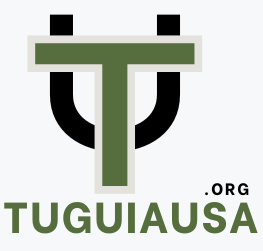Table of Contents
- The Importance of Dental Health
- Daily Habits for a Healthy Smile
- Preventing Common Dental Problems
- The Role of Diet in Dental Health
- Benefits of Regular Dental Check-ups
- Choosing the Right Oral Health Products
- The Impact of Stress on Dental Health
- Community Resources for Dental Health
The Importance of Dental Health
Dental health is more than just cosmetic appeal; it is essential for upholding general well-being and quality of life. A well-maintained mouth allows for efficient chewing and clear communication and showcases a radiant smile. Beyond aesthetics, good dental hygiene reduces the risk of severe illnesses. Bad oral health has been associated with overall health problems such as heart disease and diabetes. Therefore, understanding this connection is essential for those exploring California dental insurance. Regular dentist trips and good dental hygiene help avoid cavities and gum disease, leading to a better quality of life. Dental health should be a priority at every life stage. A mouth free from disease is integral to speaking, smiling, and overall comfort. Often, individuals underestimate dental issues’ ripple effect, becoming apparent only when discomfort arises. By making proactive oral health care part of the routine, we can avoid these issues and take control of our overall health.
Daily Habits for a Healthy Smile
Building a foundation of daily oral hygiene routines supports good health. Effective brushing twice daily using fluoride-infused toothpaste is paramount. This process removes food particles and bacteria that accumulate throughout the day. Flossing helps by removing debris from small spaces between teeth that are hard to reach with brushes, which lowers the chances of tooth decay and gum disease.
In addition to the fundamentals, using an antibacterial mouthwash can provide an extra level of defense, decreasing the transmission of bacteria responsible for halitosis and gum problems. Adopting these habits across family members ensures a tradition of oral health that can last generations and enhance everyone’s quality of life. These daily efforts culminate in a brighter smile and significantly lower dental costs over time, as prevention is always more economical than cure.
Preventing Common Dental Problems
If left untreated, common dental problems can lead to lasting effects. These are frequently caused by inadequate oral hygiene habits, excessive sugar consumption, or ignoring routine dental examinations. With statistics showing that over 90% of adults have experienced cavities, implementing preventive measures is vital. Maintaining proper oral hygiene, coupled with modest dietary sugars, can mitigate these risks. Regular dental check-ups serve as a checkpoint for identifying early signs of these issues before they escalate. Taking a proactive stance on diet and hygiene allows people to maintain oral health.
The Role of Diet in Dental Health
A well-rounded diet is essential for keeping teeth and gums healthy. Consumption of calcium-rich dairy products helps build strong enamel, fortifying teeth against decay. Furthermore, crisp fruits and vegetables such as apples and carrots are organic toothbrushes that remove food debris and gently stimulate gum tissues.
Conversely, high sugar and acidic foods can erode the enamel, increasing the risk of cavities. Embracing a diet rich in nutrients while limiting sugary snacks and drinks benefits oral health and enhances overall well-being. Implementing these dietary changes can lead to a healthier lifestyle, with a ripple effect from improved dental health to nutritional balance.
Benefits of Regular Dental Check-ups
Regular dental check-ups allow dentists to clean teeth thoroughly, removing plaque and tartar that can’t be eliminated through regular brushing and flossing alone. These appointments are also the perfect moment to identify early symptoms of oral diseases, including gingivitis and cavities before they require extensive treatments.
Moreover, routine visits help reinforce good oral habits and provide professional guidance tailored to each individual’s needs. Investing time in bi-annual check-ups can save significant expenses and discomfort in the future, proving that prevention is genuinely better than cure.
Choosing the Right Oral Health Products
The myriad oral health products available can be overwhelming, but choosing the right ones is vital to effective oral care. Soft-bristled toothbrushes are recommended to gently clean teeth and gums without causing damage or irritation. Toothpaste containing fluoride offers the best defense against cavities, and looking for products with the American Dental Association seal ensures efficacy. Dental floss comes in varied types, each tailored to different needs, from waxed for easy gliding between tight spaces to tape for broader cleaning. Selecting the right products that align with personal dental needs enhances oral hygiene efficacy, as each uniquely safeguards dental health.
The Impact of Stress on Dental Health
Stress poses a silent threat to dental health, often manifesting through habits like teeth grinding or jaw clenching. These habits, typically unconscious, can wear down the enamel, leading to sensitivity or fractures. Additionally, stress can compromise the immune system’s response, exacerbating gum inflammation and leading to periodontal disease. Incorporating stress-relief methods like regular exercise or mindfulness activities like meditation can significantly help reduce the adverse effects of stress on dental health. By managing stress, individuals can improve their quality of life and protect their dental health from its relentless effects.
Community Resources for Dental Health
Communities are pivotal in promoting good dental health by offering accessible and affordable resources. Local health departments are at the forefront, often partnering with dental schools or conducting free clinics to provide essential services to underserved populations. These initiatives can include preventive care services like cleanings, examinations, and restorative care. Community engagement in oral health education through workshops or health fairs can amplify public understanding and accessibility to dental care. By facilitating these resources, communities can ensure that everyone has the opportunity to maintain excellent oral health, regardless of their financial situation.
May Also Read: tuguiausa

